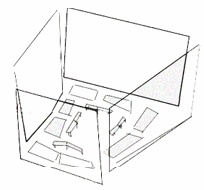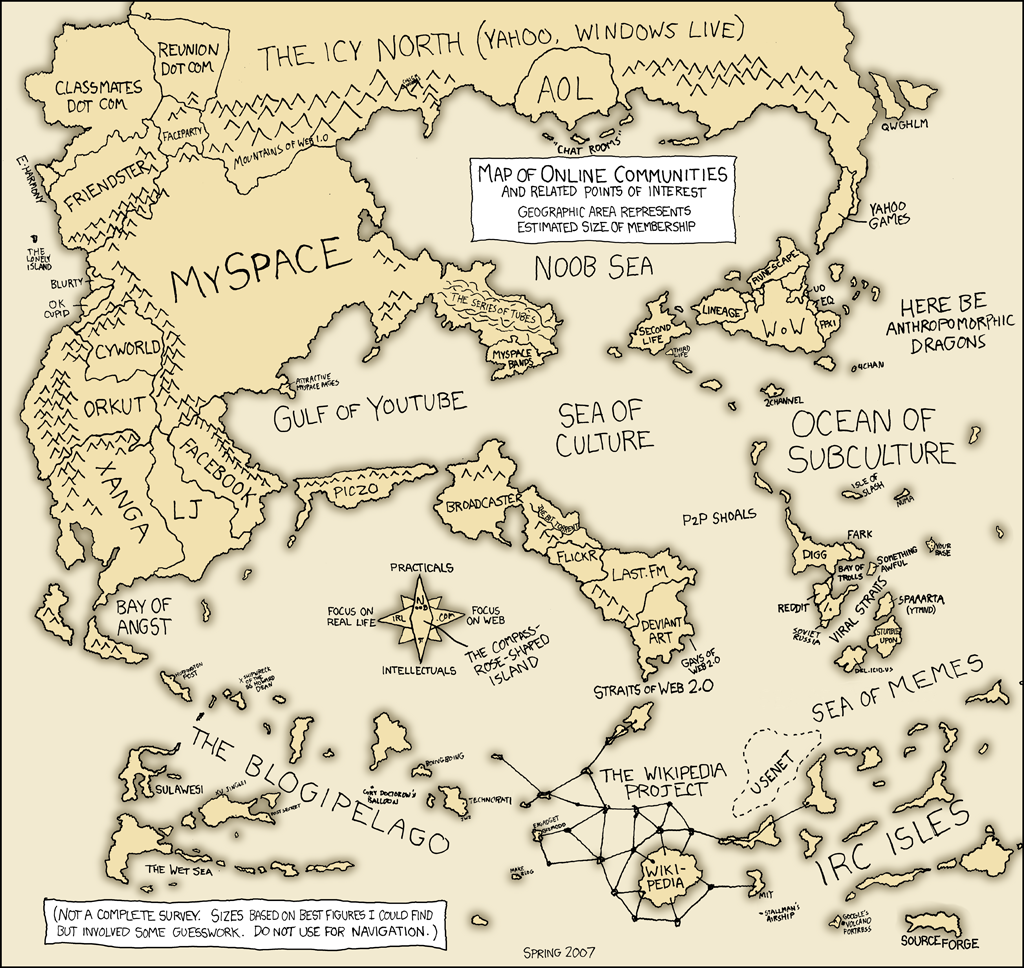Alex Itin has done it again. Here it is: “Orson Whales,” an intertextual fantasia on Moby-Dick and Orson Welles set to the savage drums of John Bonham. Each frame is a page of this edition of the Melville text, painted and photographed and strung together in iMovie.
What you’re seeing is the entire book (actually two full copies – Alex can only paint on one side of each page because of bleed-through, so to get the whole text he had to double up). Here’s some of it stacked up in the studio (this is months of work):

The soundtrack is detritus gathered from web searches, a hunt for the white whale through a sea of tangents – appropriate, really, for the great book, which is so notoriously (and gloriously) tangential.
Alex: “The soundtrack is built from searching “moby dick” on You Tube (I was looking for Orson’s Preacher from the Huston film from the fifties) I couldn’t find the preacher, but did find tons of Led Zep and drummers doing Bonzo and a little Orson……. makes for a nice Melville in the end.”
Also check out his animation, same technique, of Ulysses. Bravo, Alex! (and happy birthday)!
Monthly Archives: May 2007
map of online communities
texts over time
There’s a striking passage in “The Folio Restored”, an article by Jonathan Bate in the April 20 issue of the Times Literary Supplement on the perils of editing Shakespeare because of the differences between various editions:
“Perhaps it would be best to abandon the idea that any one text represents the ‘definitive’ version of a Shakespeare play. After all, the quest for a ‘definitive’ text, based on a ‘single lost original’, was premissed on the principles of Classical and biblical textual criticism. It is not necessarily appropriate for more modern literary and, especially, dramatic texts. ‘Version-based editing’ now seems a more fitting way of approaching authors (such as Wordsworth in The Prelude, or Henry James in the New York Edition of his novels) who self-consciously revised their word. Theatre is a supremely mobile art form, and we need a similar version-based approach to Shakespeare. We cannot be confident about the degree of authorial control in the revision of Shakespeare’s plays, or the extent to which it was systematic or haphazard; but we can be confident that many of the thousands of differences between the quarto and Folio texts are best explained by accepting that the texts embody different moments in those plays’ theatrical lives.”
(p. 12 of the 20 April 2007 issue; online here, though their archive is subscriber-only.) I don’t think you need to be interested in the details of textual minutiae to see that this is an interesting way of thinking about texts, and especially about how they can function in a digital age. Texts might be thought of as souls metempsychosing through bodies, temporarily alighting in books as they pass through time.
monkeybook 2: an evening with brad paley
 Monkeybook is an occasional series of new media evenings hosted by the Institute for the Future of the Book at Monkeytown, Brooklyn’s premier video art venue. For our second event, we are thrilled to present brilliant interaction designer, friend and collaborator W. Bradford Paley, who will be giving a live tour of his work on four screens. Next Monday, May 7. New Yorkers, save the date!
Monkeybook is an occasional series of new media evenings hosted by the Institute for the Future of the Book at Monkeytown, Brooklyn’s premier video art venue. For our second event, we are thrilled to present brilliant interaction designer, friend and collaborator W. Bradford Paley, who will be giving a live tour of his work on four screens. Next Monday, May 7. New Yorkers, save the date!
Brad is one of those rare individuals: an artist who is also a world-class programmer. His work focuses on making elegant, intuitive visualizations of complex data, in projects ranging from TextArc, a dazzling visual concordance of a text (a version of which was presented with the new Gamer Theory edition), to a wireless handheld device used by traders at the New York Stock Exchange to keep up with the blitz of transactions. It’s a crucial area of experimentation that addresses one of the fundamental problems of our time: how to make sense of too much information. And in a field frequently characterized by empty visual titillation, Brad’s designs evince a rare lucidity and usefulness. They convey meaning beautifully – and beauty meaningfully.
Brad is always inspiring when talking about his stuff, which is going to look absolutely stunning in the Monkeytown space. If you’re in the area, be sure not to miss this. For those of you who don’t know it, Monkeytown is unique among film venues in New York — an intimate room with a gigantic screen on each of its four walls, low comfy sofas and fantastic food. A strange and special place. If you think you can come, be sure to make a reservation ASAP as seating will be tight.
More info here.
(Monkeybook 1)

